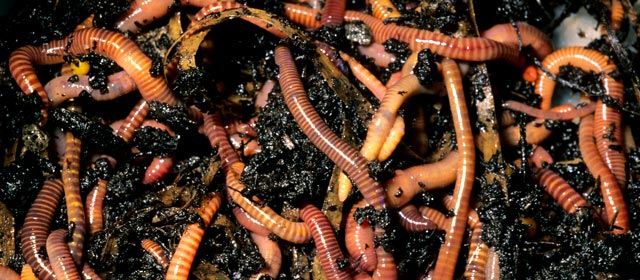Earthworms are more important than pandas (if you want to save the planet)
It may be doubted whether there are many other animals which have played so important a part in the history of the world, as have these lowly organised creatures.
Not all wildlife is created equal in our eyes. Take the earthworm, which doesn’t have the widespread appeal of larger, more charismatic animals such as gorillas, tigers or pandas. Worms are never going to get a strong “cute response”, and they won’t ever be the face of a conservation campaign.
But what Darwin rightly recognised is that – panda fans avert your eyes – worm conservation is much more important once we factor in their provision of what we now call “ecosystem services”, which are crucial to human survival. Darwin spent 39 years studying these animals for a good reason. Earthworms have even been ranked the number one most influential species in the history of the planet – above dinosaurs and humans.
Why care about the worm?

Ecologists consider earthworms “keystone species” because of how much they influence the physical, chemical and biological properties of the soil. Here are five reasons why:
1) Earthworms are recyclers. They play a crucial role in breaking down organic matter and fertilising the ground, directly through their constant eating and pooping (about 1.5 times their body weight a day). What comes out the other end – known as a worm cast – is full of nutrients and bacteria that are beneficial for plants. Scientists have measured up to five times the amount of critical nutrients in worm casts compared to surrounding soil.
2) Earthworms are great “soil engineers”. As they move through the soil, earthworms loosen and mix it up, helping to aerate and drain it. This brings nutrients to the surface, making the soil more fertile, and helps prevent flooding and erosion.
3) Juicy earthworms are an essential food source. They are protein-rich and feed several animals, such as the European badger.

4) Earthworms can help repair damaged soil and may provide solutions to human-made problems. Research suggests that worms could help to clean up land contaminated with toxic heavy metals such as lead.
Climate change and human intervention are fast-tracking the world’s loss of biodiversity. The plight of the tiger in India and the orangutan in Indonesia are well known. Still, scientists are also becoming concerned about earthworms and other animals that we are less familiar with, but which we can’t afford to lose.
If pandas go extinct, it will be unfortunate. But, a world without earthworms? Arguably without earthworms in our soils, life could vanish pretty quickly. We would have less food, more pollution, and more flooding.
No matter how cute a panda looks, it is Darwin’s “lowly” earthworms that are doing dirty, but crucial, work in the soil below.
The Earthworm plows the whole world with his tunnels, drains and aerates the earth… If you ever buy any land, be sure it has plenty of Earthworms toiling and moiling all day so that you can sit down and relax.

No comments:
Post a Comment